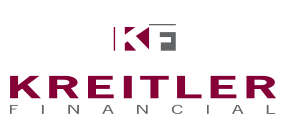Money today doesn’t necessarily translate to money tomorrow.
Research shows:
- ·Around one-third of Americans don’t have any savings at all.
- 80% of Americans are stressed about the cost of living
- If they lose their income, around half of them won’t be able to cover their expenses for 90 days
Individuals with unpredictable careers need more financial acumen than your average Joe because of the nature of their careers. So, planning is NOT optional.
Accidents happen, and a major life-altering event can leave you unemployed before you say “Uncle.” If the Covid-19 pandemic has taught us anything, it’s that disaster can take many forms and strike at any time. Without a clear financial path ahead of you, it can be difficult to keep your head afloat in the long run.
We at Kreitler Financial are firm believers in having an expert on your side to manage your expenses. Understandably, you might not be ready to get on board yet, and that’s okay.
Don’t worry.
Even if you’re not planning on getting expert help now, you can use this article as a guideline as we explore the ins and outs of proper financial planning for an unpredictable career.
Benefits of Having a Clear Financial Plan for Unpredictable Career
A clear financial plan is vital when income shifts are unpredictable.
Mapping things like:
- Personalized budgets
- Savings targets
- Debt reduction
- And wealth-building vehicles
will provide a reliable roadmap despite erratic earnings.
A definitive financial vision enforces discipline when you get tempted to overspend. Following a tailor-made financial model that accounts for diverse scenarios, such as emergencies or luxuries, can often pay off in the long run for individuals on an unpredictable career path.
A smart way to go about it is to consult with financial planners skilled in variable income dynamics, as they can help optimize spending decisions without all the impulse interfering.
Also, they will help you implement structured financial plans to help weather storms without breaking a sweat.
Understand the Unpredictable Nature of the Career:
The key to having a financial plan that compliments your career path is to first understand its nature.
Freelancers and consultants, for example, can often fall victim to irregular income streams. A lack of employer-sponsored benefits and a fixed salary means there’ll be periods of famine in your career when you don’t have an ongoing job.
For athletes, on the other hand, a serious injury can often lead to an early retirement. On the other hand, those working in the media industries can suffer from unemployment in situations such as the Covid-19 pandemic.
Understanding how your career can potentially take a hit will help you better prepare for the future and manage your wealth accordingly.
Build an Emergency Fund:
Prudent financial planning involves setting aside funds to cover unexpected expenses and income disruptions. Financial advisors typically recommend maintaining an emergency reserve fund equal to 3-6 months of living expenses.
This liquid asset pool offers stability when facing sudden unemployment, health issues necessitating medical care, urgent home repairs, automotive replacements for primary transportation, or other unanticipated costly events.
Savings allocated specifically for emergencies allow individuals to cover essential needs during difficulties without accruing debt or liquidating long-term investments in a down market.
An emergency fund helps absorb the immediate impact of an urgent situation and provides time to adjust while maintaining basic living standards. Establishing this safety net reduces stress and risk when confronting financial surprises.
Though building such reserves requires tradeoffs and conscious prioritization, having quick access to several months of income is solid preparation. An emergency fund helps ensure temporary hardship won’t become an insurmountable crisis.
Set a Budget and Monitor Expenses:
Carefully tracking income and expenses through a detailed budget plan will give you clear financial visibility, especially for those with irregular earnings.
Not understanding the nuances of cash flow management is one of the top 5 financial mistakes one can make.
That’s why a careful calculation of monthly spending can highlight unnecessary expenses even when the income stream is stable. If you learn how to cut down on excess spending, it will eventually build towards good financial habits, strengthening your monetary muscles.
With an expense baseline set during leaner months, surplus income in peak season helps you reach your savings goals or retirement milestones.
Remember, establishing a budget comes down to honesty – you can’t save and monitor your expenses if you aren’t honest with yourself. But don’t forget to have some extra entertainment fund as a reward for sticking to your budget!
Diversify Income Streams:
Achieving true financial resilience means not relying on any single income stream. Having a diverse source of revenue can function as a reliable safety net when your primary cash cow runs out of milk.
Passive income options or some wise investments sown during peak earning time will bear fruit should sudden career storms come striking.
The key is to establish an alternative income that::
- Aligns with personal passions and abilities
- Requires minimal maintenance
- And funds future projects
Together, they provide lasting security apart from primary career reliance. Embracing a diversity-income mindset offers many benefits, such as the liberty to take career risks without jeopardizing essential living needs.
Insurance and Retirement Management:
Those with unpredictable incomes must independently safeguard against risks generally provided by employers.
Obtaining comprehensive health, disability, and life insurance is essential, as accident, illness, or early death can otherwise prove financially devastating without benefits.
Additionally, funding retirement without an organizational match requires early, consistent, and aggressive personal investing to maintain living standards. Though non-traditional careers have merits, their variability demands proactive insurance and retirement planning for long-term security.
Setting up Individual Retirement Accounts or Solo 401(k) plans can make it easier for self-employed workers to manage their retirement funds.
Tax Management:
Navigating complex tax codes is challenging for those with variable or unconventional income streams. Without an expert finance team managing taxes, it falls upon the individual to master tax planning, leverage deductions, and employ legal mitigation strategies.
Consulting tax professionals will give you the foundation to minimize liabilities across changing income terrain.
Specialists remain vigilant of shifting codes, finesse documentation for deduction justification, inform on qualification for tax credits, and oversee annual filing accuracy.
Hiring a Financial Expert:
If you don’t want to fall victim to the common pitfalls of financial planning, it’s best to consult an expert who knows what they’re doing. Navigating the ins and outs of financial planning and wealth management can get quite tricky. Even more so when you’re on an unpredictable career path.
However, certified financial planners can provide insights and come up with strategies that are tailor-fit for your needs. A professional financial advisor can help create a custom roadmap for your financial goals that align with your vision both short and long-term.
Work with Us
Navigating personal finance without the right co-pilot can feel like wandering through the fog. But the confusion lifts when you have a trusted advisor who is focused on your vision.
Book a call today, and you’ll see us craft a realistic and personalized step-by-step plan tailored to your financial situation. Feel free to bring your concerns and financial questions. We’re ready to listen and steer you towards smart money strategies and peace of mind.
P.S.: Check out our newsletter as well – every quarter, we provide important updates and financial insights free.

